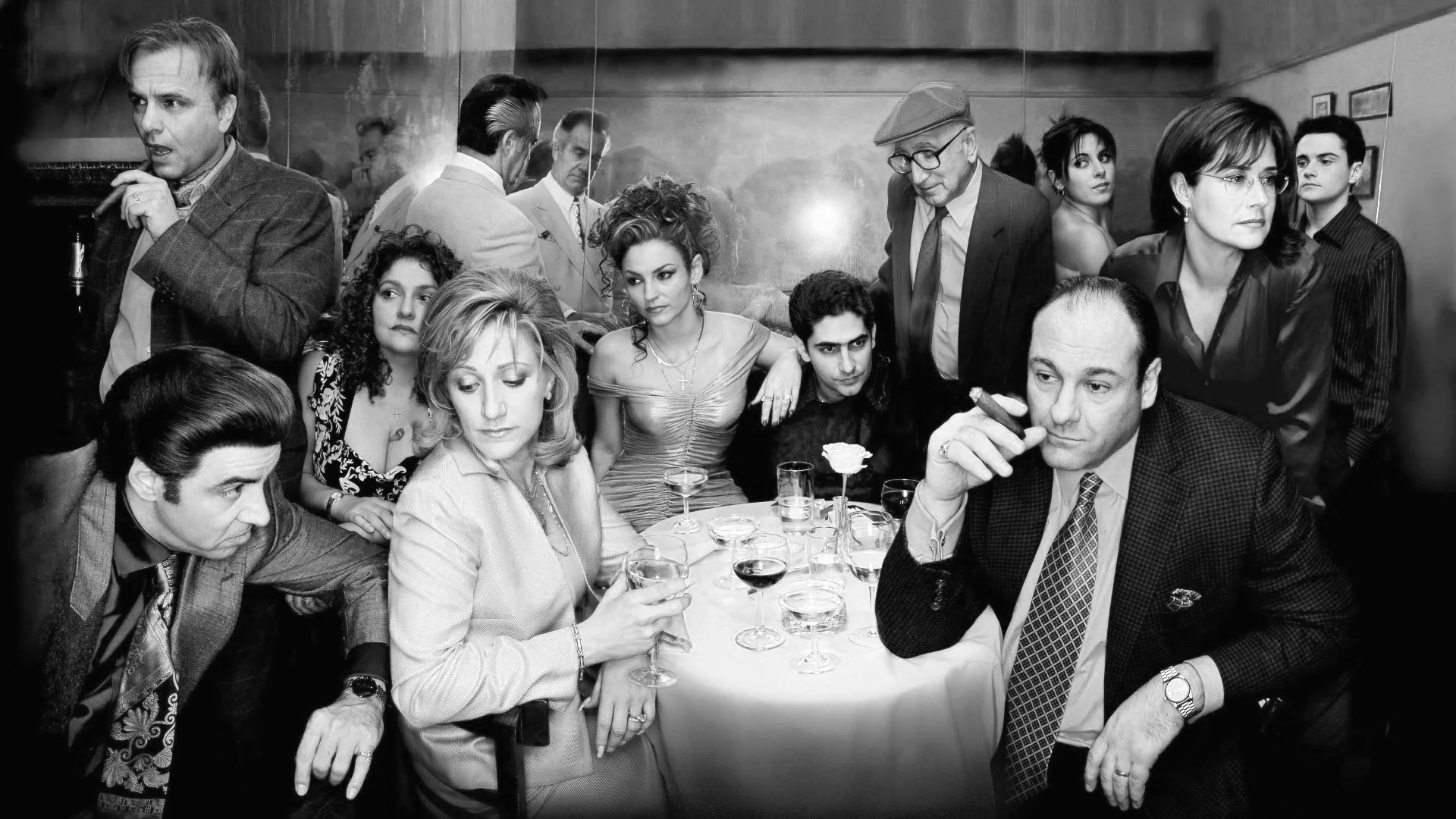The Sopranos (1999)
Creator: David Chase
»The Sopranos« premiered in 1999 and instantly revolutionized television storytelling, introducing viewers to a gritty and introspective exploration of a mob boss's personal and professional life. Created by David Chase, the first season of this HBO series broke new ground with its complex characters, nuanced storytelling, and examination of the human psyche.
The series centers around Tony Soprano, a New Jersey mob boss struggling to balance his criminal empire with the challenges of family life and his own inner demons. The first season delves deep into Tony's psyche as he begins therapy sessions with Dr. Jennifer Melfi, providing audiences with a profound exploration of his struggles with anxiety, depression, and the moral implications of his criminal lifestyle.
One of the most remarkable aspects of »The Sopranos« is its depiction of characters who defy traditional mob stereotypes, offering a fresh and multi-dimensional portrayal of organized crime. Tony Soprano is a complex antihero, portrayed with remarkable depth by James Gandolfini. He embodies a sense of vulnerability and inner turmoil rarely seen in mob bosses, allowing audiences to connect with his struggles and empathize with his humanity.
The supporting characters in »The Sopranos« are equally well-developed, each with their own intricacies and storylines. From Tony's formidable wife, Carmela, to his troubled sister, Janice, and his loyal right-hand man, Silvio Dante, the show paints a rich tapestry of relationships and conflicts within the mob world and beyond. The characters navigate a web of family dynamics, loyalty, betrayal, and personal desires, adding layers of emotional depth to the already compelling narrative.
The writing in »The Sopranos« is exceptionally strong, showcasing a deft balance of drama, dark comedy, and introspection. The dialogue is sharp, authentic, and laden with cultural references that add depth to the characters and the world they inhabit. The show's ability to seamlessly blend moments of humor and levity with intense emotional moments contributes to its realism and relatability.
»The Sopranos« is not solely focused on the mob genre but also serves as a character study exploring universal themes such as identity, existentialism, and the search for fulfillment. Through Tony's therapy sessions, the series delves into the complexities of the human psyche, examining the nature of personal growth and the internal battles individuals face. This exploration transcends the crime genre and provides a profound commentary on the human condition.
The first season of »The Sopranos« sets a high standard for immersive storytelling with its gritty and realistic portrayal of organized crime and its focus on the intricate inner lives of its characters. It challenges traditional notions of good and evil, offering a nuanced examination of morality and the complex choices individuals face. The show's exploration of interpersonal relationships, personal struggles, and societal expectations resonates deeply with audiences, elevating it beyond a mere mob drama.
In conclusion, the first season of »The Sopranos« is an extraordinary achievement in television storytelling. With its complex characters, compelling narratives, and insightful examination of the human condition, it established new benchmarks for artistic and narrative excellence. The series laid the foundation for a generation of television dramas to follow, forever transforming the landscape of the medium. "The Sopranos" remains a timeless classic that continues to be regarded as one of the greatest television series of all time.

